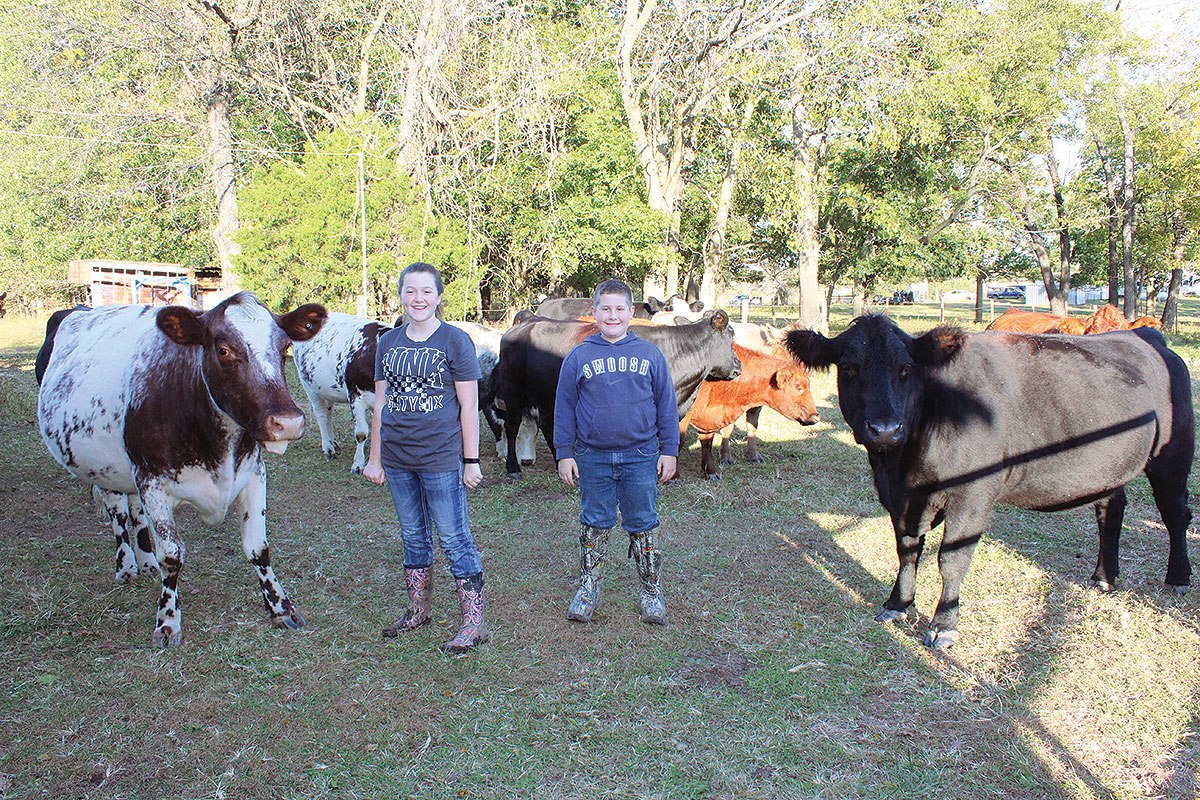
Ryan Cable and wife, Samantha, own and operate a farm near Halfway, Mo., that once belonged to his grandpa, Gale Cable. Although he didn’t grow up on a farm, he had been off and on this farm since he was a kid. Now it is where they are raising their children, Carli and Cash.
When he was 15 years old, Ryan went to work at Nixa Livestock. “I worked while I was in school and after school,” he said. “That’s when the bug got me to be in the cattle business. I just got hooked on it.”
Ryan moved to his grandpa’s farm in the fall of 1999 and took over operations. He said, “I’ve been here ever since.” His grandpa passed away in 2006. Ryan explained, “The farm was set up in a trust and we purchased everything at appraised value.”
On his 700-acre farm, Ryan custom pre-conditions and backgrounds calves for other people. He has been doing this for 5 years. Ryan said, “The custom pre-conditioning is kind of our town job, without having to leave the farm.”
He has a paying customer who buys cattle locally. Ryan explained, “He sends us the cattle. We’ve got a different pen of cattle for every size. When the cattle are sent to us, we run them through the chute, give them a round of first vaccinations, ear tag them and get them started on feed.”
In 14 days, they are boosted with a second round of vaccinations. “We’ll have those cattle anywhere from 45 to 60 days,” Ryan stated. He added, “We have a customer in Minden, Iowa that likes Missouri cattle and we keep his for about 120 days. Basically, we’re getting the cattle ready from the sale barn or from the fresh source. Wherever they go from here, they are ready. They (owners) don’t have to worry about health problems or vaccinations. They can open those trailer gates and those cattle are ready to go.”
Ryan backgrounds between 1,500 and 2,200 calves a year. Most of the cattle that leave his farm go to Nebraska or Iowa.
“Every nickel we spend has to have some kind of return for this farm to work,” Ryan said. “We’ve went to a total mixed ration using a lot of wet feed. We’ve got the ability to feed wet distillers grain. We grind our hay with that. We try to buy our corn locally, straight from the farmer. It helps lower the cost.”
Saving money is always good, and farmers are always looking for ways to do just that. “If you’re set up to be able to mix it, wet distillers are a good alternative,” Ryan said. “It’s a lot cheaper and you can make a cheaper ration.” He did point out, “there’s expense going into it with the mixers and the hay grinder. But once you’re set up, it will save in the long run.”







